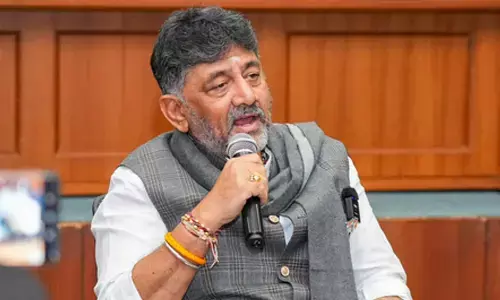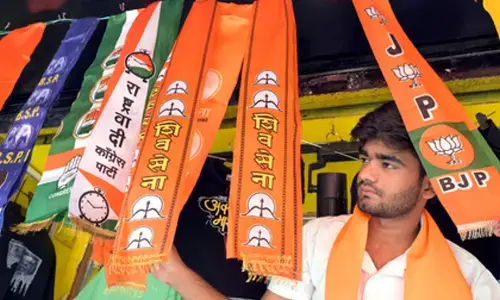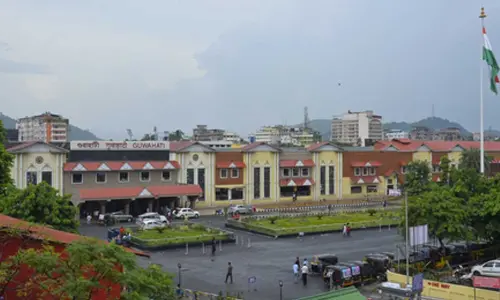Gubernatorial discretion
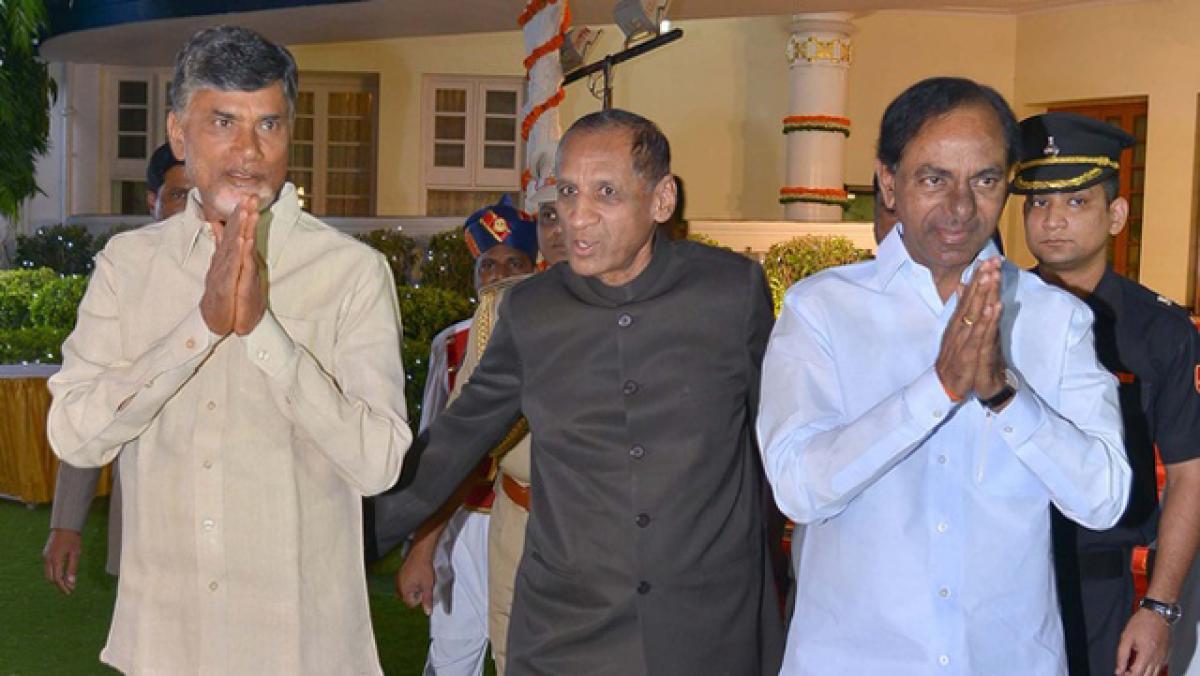
Gubernatorial discretion. The debate over the Section 8 of the Andhra Pradesh Reorganization Act has once again raised the long-debated issue of gubernatorial powers, especially the discretionary powers, enjoyed by this office under the Indian Constitution that envisages parliamentary democracy. Interpretation of the constitutional provisions based on political exigencies is undemocratic.
The debate over the Section 8 of the Andhra Pradesh Reorganization Act has once again raised the long-debated issue of gubernatorial powers, especially the discretionary powers, enjoyed by this office under the Indian Constitution that envisages parliamentary democracy. Interpretation of the constitutional provisions based on political exigencies is undemocratic.
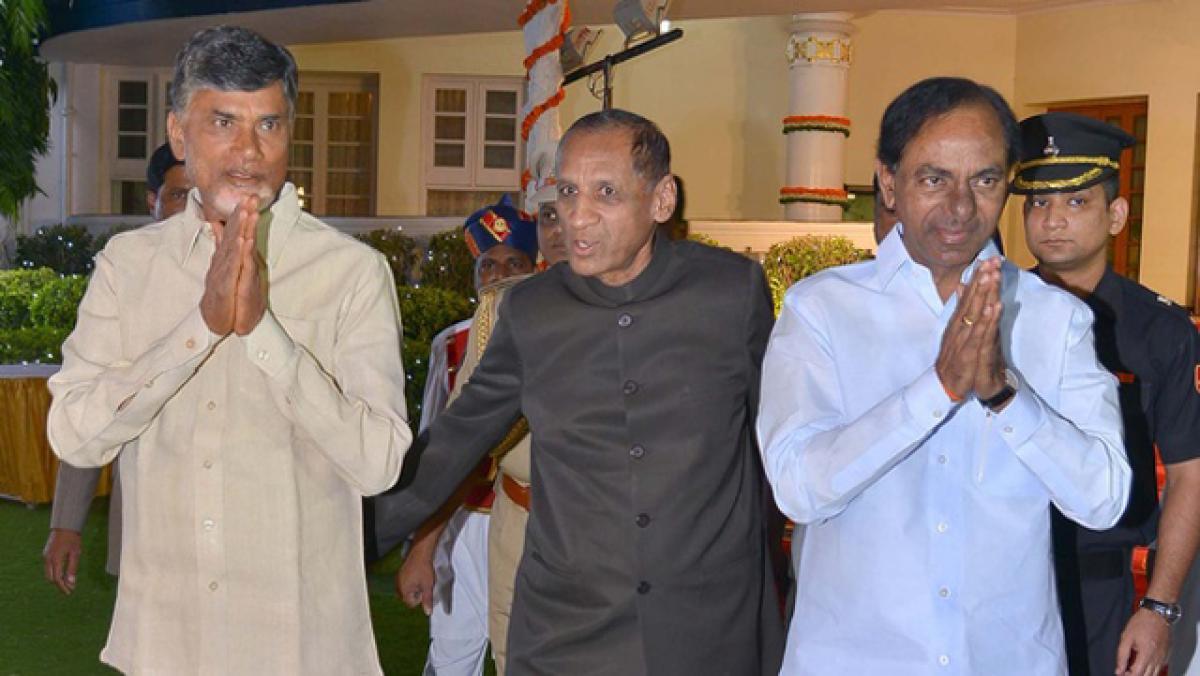
Before examining the constitutional status of the Governor, let us look at what the Section 8 actually says. It says:
(1) On and from the appointed day, for the purposes of administration of the common capital area, the Governor shall have special responsibility for the security of life, liberty and property of all those who reside in such area.
(2) In particular, the responsibility of the Governor shall extend to matters such as law and order, internal security and security of vital installations, and management and allocation of government buildings in the common capital area.
(3) In discharge of the functions, the Governor shall, after consulting the Council of Ministers of the State of Telangana, exercise his individual judgment as to the action to be taken:
Provided that if any question arises whether any matter is or is not a matter as respects which the Governor is under this sub-section required to act in the exercise of his individual judgment, the decision of the Governor in his discretion shall be final, and the validity of anything done by the Governor shall not be called in question on the ground that he ought or ought not to have acted in the exercise of his individual judgment.
(4) The Governor shall be assisted by two advisors to be appointed by the Central Government.
The Section 8 only states special responsibility of the Governor but does not refer to any powers. The Section also mandates the Governor to consult the Council of Ministers of the State of Telangana while exercising individual judgment. Therefore, ‘consultation’ and ‘individual judgment’ are the two important provisions in interpreting the Section 8.
In State of Gujarat & Anr. … Appellants Versus Hon’ble Mr. Justice R.A. Mehta (Retd) & Ors. … Respondents, The Supreme Court of India has dealt in detail the meaning of the word ‘consultation’. The judgment said,”… the meaning of consultation varies from case to case, depending upon its fact-situation and the context of the statute, as well as the object it seeks to achieve. Thus, no straight-jacket formula can be laid down in this regard.
Ordinarily, consultation means a free and fair discussion on a particular subject, revealing all material that the parties possess, in relation to each other, and then arriving at a decision. Therefore, the Section 8 does not give the Governor absolute powers even in regard to the common capital. The Andhra Pradesh government wants no role for the Council of Ministers of the State of Telangana in the common capital in regard to the areas mentioned in the Section 8 (1) and (2).
The Telangana government wants the Governor to act on the aid and advice of the cabinet only ignoring the fact that the statue provides for discharge of a special responsibility. Thus, the process of consulting as suggested by the Section 8 should be seen in the context and the objects of the statue as mentioned in the above quoted judgment of the apex court. The context is that the two States have a common capital and the object is to provide for the security of life, liberty and property of all those who reside in such area.
In particular, the responsibility of the Governor shall extend to matters such as law and order, internal security and security of vital installations, and management and allocation of government buildings in the common capital area. Thus, the interpretation of the Section 8 should not go beyond this context and the object of the statute, nor should it ignore it. In Samsher Singh v. State of Punjab & Anr., AIR 1974 SC 2192, the Supreme Court expounded the universal rule that the Governor is bound to act only in accordance with the aid and advice of the Council of Ministers, headed by the Chief Minister.
“…The real executive powers, however, are vested in the Ministers of the Cabinet. Wherever the Constitution requires the satisfaction of the President or the Governor, for the purpose of exercise by the President or the Governor, any power or function, such satisfaction is not the personal satisfaction of the President, or of the Governor, in their personal capacity, but the satisfaction of the President or Governor, in the Constitutional sense as contemplated in a Cabinet system of government, that is, the satisfaction of the Council of Ministers, on whose aid and advice the President, or the Governor, generally exercise all their powers and functions.”
In M.P. Special Police Establishment v. State of MP & Ors., AIR 2005, the Supreme Court carved out certain exceptions to the said provision. For instance, where bias is inherent or apparent; or, where the decision of the Council of Ministers is wholly irrational, or, where the Council of Ministers, because of some incapacity or other situation, is disentitled from giving such advice; or, where it refrains from doing so as a matter of propriety; or in the case of a complete breakdown of democracy.
In State of Gujarat & Anr. … Appellants Versus Hon’ble Mr. Justice R.A. Mehta (Retd) & Ors. … Respondents , the Supreme Court has further stated, “The executive power of the State, is coextensive with the legislative power of the State, and the Governor in the Constitutional sense, discharges the functions assigned to him under the Constitution, with the aid and advice of the Council of Ministers.”
Though Hyderabad has been made the common capital by the State Reorganization Act, the fact remains that the city is in the State of Telangana, and is under the jurisdiction of the legislature and the executive of the State of Telangana. This is precisely why the Section 8 of the said act does not provide any powers or responsibilities for the Government of Andhra Pradesh. The act does not even say powers but only calls for special responsibility of the Governor.
This fine demarcation in the interpretation of the Section 8 and the role it assigns for the Governor should be understood without any prejudice or emotion. To conclude, the Governor is bound by the law to protect the security, liberty etc., of the people residing in the common capital. The Governor can also arrive at an individual opinion. And this opinion cannot be questioned. In such a situation the consultation does not mean concurrence of the Council of Ministers of Telangana.
But, in normal situation and in any other situation where the Governor is not intending to take an individual opinion, he is mandated by the Constitution to act on the aid and advice of the Council of Ministers of Telangana, and consultation in such cases mean concurrence of the Cabinet only. Thus, the interpretation of the Section 8 cannot be universal. It should mean differently in different cases in view of the context of the Section and its objects.











